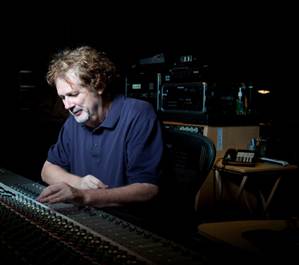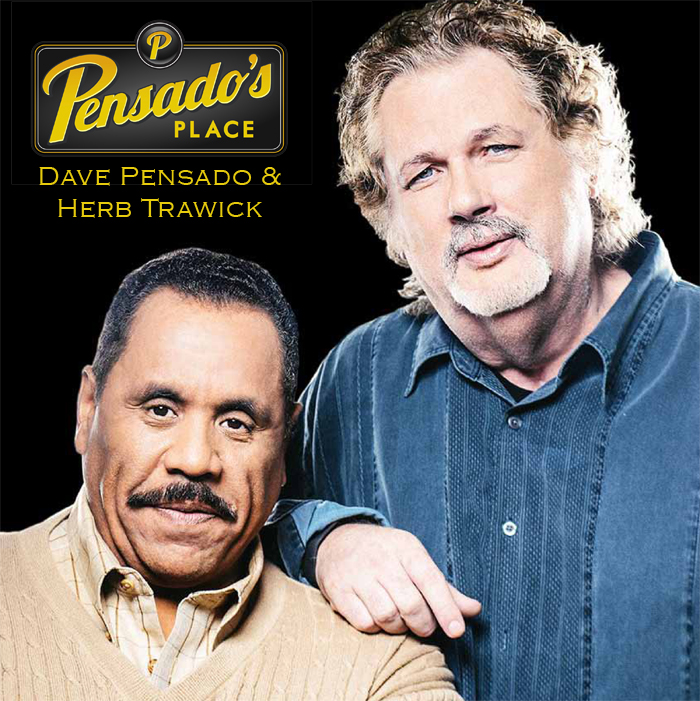An Evening at Pensado’s Place
Tuesday, 26 March 2013
7:00 PM
Ryerson University
RCC 204, Eaton Theatre, Communications Building
80 Gould Street, Toronto, ON
Corner of Gould and Church, east of Yonge St (Dundas Subway)
Pre-Meeting “Dutch Treat” dinner 5:00 pm at the Pickle Barrel (corner of Edward and Yonge, just north of Dundas, in the Atrium)
For parking info and map, goto www.ryerson.ca/parking/
For meeting info goto Toronto AES.
This month’s meeting will not be available live on-line.
PRESENTATION
Join us for an evening featuring award-winning engineers speaking about their careers and sharing tips and techniques with host Dave Pensado. Joining us live online will be Dave and co-host, Herb Trawick, as they talk about the show and sit for a Q&A session.
Top mixing engineer Dave Pensado (Beyonce, Christina Aguilera, Kelly Clarkson, Mariah Carey, Elton John, Michael Jackson, and more!) talks all things music and audio in his weekly show, Pensado’s Place. Dave gives you insights into his career and teaches you how to get that “platinum record” sound for your own mixes. The show includes interviews with top music industry artists, engineers, producers, mixers, and record executives, as well as in depth tutorials in engineering and mixing. We’ll sample the show podcasts, and then open the floor for discussion. If you are into music production, you can’t miss this evening!
(Yes, you could watch these at home but then you couldn’t share your thoughts and opinions with your fellow local AES buds.)
BIOGRAPHY
 Dave Pensado, who cut his teeth in recording studios and as a live sound engineer in Atlanta in the ’70s and ’80s before moving to Los Angeles in 1990, emphasizes that it’s vital to retain an overview of the entire song. “You need to know what you’re aiming for, or you’re lost. Before I begin a mix, I will always have heard a rough mix that has at least the basic elements of the track and the vocal, and this gives me a direction. There’s only one time to hear a song the first time, and I like to catalogue my first impressions because I trust them. So I’ll begin the process by pulling out pen and paper and noting down the weaknesses and strengths of a song.
Dave Pensado, who cut his teeth in recording studios and as a live sound engineer in Atlanta in the ’70s and ’80s before moving to Los Angeles in 1990, emphasizes that it’s vital to retain an overview of the entire song. “You need to know what you’re aiming for, or you’re lost. Before I begin a mix, I will always have heard a rough mix that has at least the basic elements of the track and the vocal, and this gives me a direction. There’s only one time to hear a song the first time, and I like to catalogue my first impressions because I trust them. So I’ll begin the process by pulling out pen and paper and noting down the weaknesses and strengths of a song.
“I also like to memorize the song and all the elements of the mix — something which has, over the years, become progressively more difficult! For some songs I have 100 inputs or more on the console. The beauty of Pro Tools is that you can see which parts are being played. Back in the old tape days you had to work a little harder at memorizing the different parts.”
Pensado, who mixes between 200 and 250 songs a year, has a residency at Larrabee Studios in Los Angeles. Pride of place in his room at Larrabee goes to an SSL console, which he laughingly says he uses mainly for “psychological reasons — it makes me feel like a big-time mixer!” Apart from the very occasional Logic session, almost all his mixes come in as Pro Tools files.
“It’s better to sound new than to sound good,” is one of David Pensado’s favourite slogans. “Old guys spending their time trying to sound good have become irrelevant,” he adds. “We only ever see them at the Grammys when they receive awards for things that don’t matter any more.”
Pensado then turns his guns on high-resolution digital formats. “I disagree thoroughly that 44.1/16 sounds inferior,” he opines. “The mathematics behind that idea may be solid, but there are ways around it. You just have to work a little harder. You show me a guy who doesn’t like a particular format and I will show you a guy who does not know how to use it. The reason many old guys are complaining about the digital stuff is that they have not taken the same amount of time to figure out what to do with digital gear as they have learning about analogue when they were young.”
He has plenty more controversial opinions, among them the claim that plug-ins now sound as good as outboard gear, and that the former offer more options and more precision. He also enthuses that digital has revolutionized music, claiming that “the music of today is the best ever”, because cheap recording means that are many more musicians recording and releasing music. Because of the law of averages, this means more quality music — as well as more dross.
David Pensado also has no hesitation in breaking another industry taboo. Under the motto “Trying to guard one’s trade secrets is as useless as Ernest Hemingway trying to hide his verbs,” he happily spills any beans he possesses. The reasoning is simple: his settings only represent 25 percent of his work, and in any case they will only work in the environment for which they were created: for instance, the reverb settings on Mary J Blige’s vocal for ‘Be Without You’ will only work for the vocal in that track.
“It’s about what you do with the gear, not about the gear itself,” he says, “so I hope that people don’t copy my settings, but see them as an inspiration and a starting point from which they can find their own way. In the end, one doesn’t sell one’s engineering skills: one sells one’s creative skills.”

